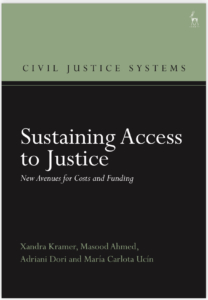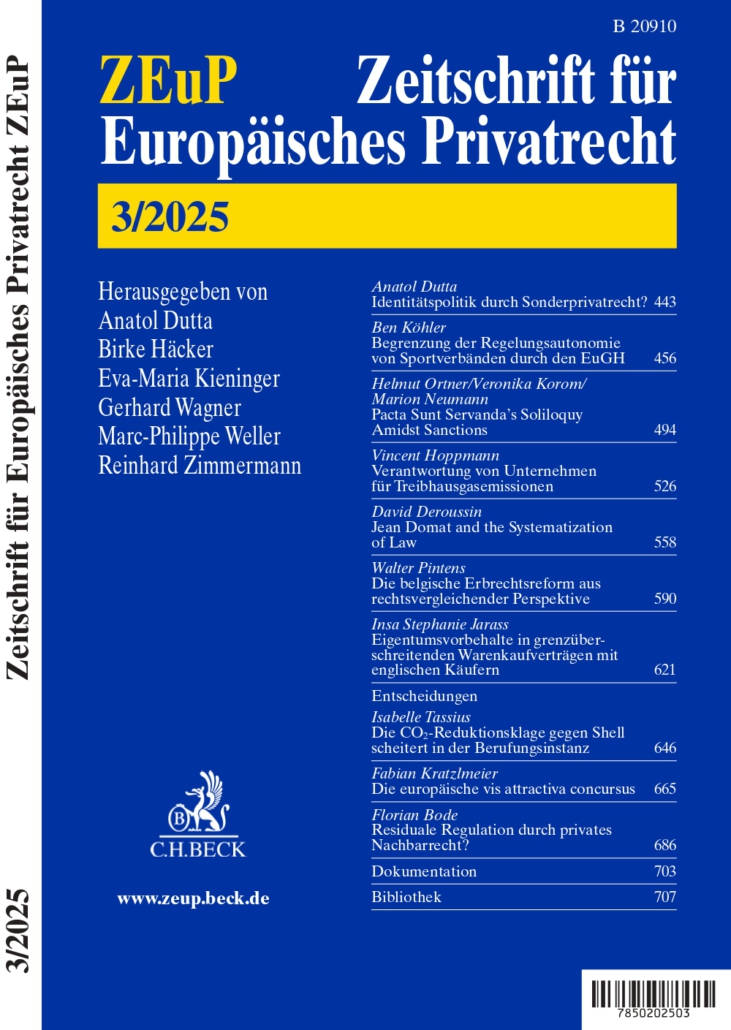Views
Anti-Suit Injunctions and Dispute Resolution Clauses
By Adeline Chong, Singapore Management University
- Introduction
In two decisions decided within a fortnight of each other, the Singapore Court of Appeal considered anti-suit injunctions pursued to restrain proceedings allegedly brought in breach of arbitration agreements. The first case, Asiana Airlines, Inc v Gate Gourmet Korea Co, Ltd (‘Asiana Airlines’)[1] dealt with whether A could rely on an arbitration agreement between A and B to restrain B’s proceedings against C, a third party. The second case, COSCO Shipping Specialized Carriers Co, Ltd v PT OKI Pulp & Paper Mills (‘COSCO Shipping’)[2] considered whether an arbitration agreement covered a tortious claim. To put it in another way, Asiana Airlines mainly concerned the ‘party scope’ of an arbitration agreement while COSCO Shipping concerned the ‘subject matter’ scope of an arbitration agreement.[3] Where the anti-suit application is to restrain foreign proceedings brought in breach of an arbitration or choice of court agreement, ordinarily it would be granted unless ‘strong cause’ is shown by the respondent.[4] This provides an easier path for the anti-suit claimant compared to the alternative requirement of establishing that the foreign proceedings are vexatious or oppressive in nature. Read more
Trending Topics in German PIL 2024 (Part 2 – Online Marriages, Gender Afiliation and Name Law)
As already mentioned in my previous post, at the end of each year I publish an article (in German) about the Conflict of Laws developments in Germany of the last twelve months, covering more or less the year 2024 and the last months of 2023. This post is the second with an overview over those topics that seem to be most trending.
The two parts focus on the following topics (part 1 contained 1. and 2.):
- Restitution of Money lost in Illegal Gambling
- Applicable Law in the Dieselgate litigation
- The (Non-)Valitidy of Online Marriages
- New German conflict-of-law rules regarding gender afiliation / identity
- Reforms in international name law
I will now give attention to the last three topics that focus on the three areas that are not harmonized by EU law (yet) and are mainly questions of family law.
The FSIA’s Direct Effects Problem
Post authored by Lance Huckabee, JD candidate and Global Legal Scholar at the University of Pittsburgh School of Law
When a foreign sovereign breaches a commercial contract with a private entity, what recourse does the wronged party have? In the United States, the Foreign Sovereign Immunities Act (FSIA) governs such disputes, providing an exception for commercial activity that causes a “direct effect” in the U.S. Yet, the definition of “direct effect” has remained elusive, leading to decades of judicial inconsistency and a deepening circuit split.
At the heart of this legal uncertainty is the Supreme Court’s decision in Republic of Argentina v. Weltover (1992), which sought to clarify the issue but instead left room for widely divergent interpretations. Some circuits have adopted a flexible, causation-based approach, analyzing whether a foreign state’s breach had an immediate consequence in the U.S. Others, like the recent D.C. Circuit decision in Wye Oak Tech., Inc. v. Republic of Iraq, have imposed rigid bright-line rules—specifically requiring that the contract contemplate the U.S. as a place of performance. This formalistic approach creates a dangerous loophole, allowing foreign states to structure agreements in a way that insulates them from jurisdiction. As a result, a U.S. business may suffer substantial financial harm from a foreign sovereign’s breach but find itself without legal recourse simply because the contract was silent on where payments were to be made.
This restrictive interpretation undermines the FSIA’s core purpose: to hold foreign sovereigns accountable when their commercial activities impact U.S. businesses. By prioritizing contractual language over economic reality, decisions like Wye Oak erode the ability of American companies to seek redress, making sovereign breaches effectively consequence-free. A proper interpretation of the FSIA should align with Weltover’s focus on causation, ensuring that foreign states cannot exploit technicalities to evade liability. If left uncorrected, the current trend risks turning the FSIA into little more than a paper shield—one that protects sovereigns rather than those they harm.
The Wye Oak decision exacerbates both intra- and inter-circuit inconsistencies, further complicating the FSIA’s application and weakening the commercial activity exception in breach-of-contract cases. By imposing a rigid bright-line rule, it unduly narrows the scope of what qualifies as a “direct effect,” creating uncertainty for U.S. businesses engaged in international commerce. With Wye Oak’s attorneys petitioning for certiorari in January 2025, the case presents a critical opportunity for the Supreme Court to resolve the longstanding circuit split on the FSIA’s direct effects clause.
News
New book and webinar Sustaining Access to Justice – 5 September
 In June the volume “Sustaining Access to Justice: New Avenues for Costs and Funding” was published in the Civil Justice Systems series of Hart Publishing (2025). The book is edited by Xandra Kramer, Masood Ahmed, Adriani Dori and Maria Carlota Ucín. This edited volume results from a conference held at Erasmus University Rotterdam, as part of the Vici project on Affordable Access to Justice funded by the Dutch Research Council (NWO). It contains contributions on access to justice themes, in particular costs and funding of litigation, by key experts across Europe, Latin America and Asia. More information, including the table of contents is available at the Bloomsbury website here.
In June the volume “Sustaining Access to Justice: New Avenues for Costs and Funding” was published in the Civil Justice Systems series of Hart Publishing (2025). The book is edited by Xandra Kramer, Masood Ahmed, Adriani Dori and Maria Carlota Ucín. This edited volume results from a conference held at Erasmus University Rotterdam, as part of the Vici project on Affordable Access to Justice funded by the Dutch Research Council (NWO). It contains contributions on access to justice themes, in particular costs and funding of litigation, by key experts across Europe, Latin America and Asia. More information, including the table of contents is available at the Bloomsbury website here.
The book explores the dynamic landscape of legal costs and financing from three perspectives: regulatory frameworks in public and private funding; new trends and challenges in contemporary legal financing; and the transformative potential of alternative dispute resolution (ADR) and online dispute resolution (ODR) procedures to streamline civil justice processes and expand access to justice.
By addressing the intersectionality of legal, economic, political, market and social dynamics, the book aims to provide an encompassing understanding of the inherent complexity of costs and funding of litigation, and their implications for access to justice.
A seminar on the ocassion of launching the book will take place on 5 September 2025, from 10-12.15 CET.
Program
10.00 Introduction Xandra Kramer, Masood Ahmed, Carlota Ucin, Adriani Dori
10.15 Jacek Garstka (European Commission) – EC perspective on the access to justice and the role of litigation funding
10.25 Maria Jose Azar-Baud – Trends in Funding of Collective Litigation
10.35 Alexandre Biard – Enforcing Consumer Rights: Costs and Funding
10.50 Discussion
11.10 Eduardo Silva de Freitas – Justice for a Price: Funders, Fees and the RAD
11.20 Marcel Wegmüller – ESG and Litigation Funding: A Practitioner’s View
11.35 Adrian Cordina – Regulating Litigation Funding: A Law and Economics View
11.45 Stefaan Voet/Masood Ahmed – Beyond Litigation: Cost-Effective Strategies for ADR and ODR
12.00 Discussion and Conclusion
More information and (free) registration here.
Webinar: Beyond State Borders, Beyond the Situs Rule? Private International Law Issues of Resource Extraction in Antarctica, the Deep Seabed, and Outer Space
The Aberdeen Centre for Private International Law & Transnational Governance (CPILTG) will be hosting a webinar by Professor Caroline Rapatz (University of Kiel, Germany) on 20 August 2025, 11am – 12pm noon.
More information is available here.
ZEuP – Zeitschrift für Europäisches Privatrecht 3/2025
A new issue of ZEuP – Zeitschrift für Europäisches Privatrecht is now available and includes contributions on EU private law, comparative law and legal history, legal unification, private international law, and individual European private law regimes. The full table of content can be accessed here: https://rsw.beck.de/zeitschriften/zeup. 
The following contributions might be of particular interest for the readers of this blog:
- Pacta Sunt Servanda’s Soliloquy Amidst Sanctions: The Impact of EU Sanctions on Contractual Performance in Arbitration Proceedings
Helmut Ortner, Veronika Korom and Marion on the Impact of EU Sanctions on Contractual Performance in Arbitration Proceedings: EU sanctions against Russia and Russia’s countermeasures have significantly disrupted trade, supply chains, and contractual relations, sparking disputes frequently resolved through arbitration. European legal systems provide a range of mechanisms—including force majeure, impossibility, frustration, and hardship—to address sanctions-related performance impediments. Despite doctrinal divergences, these frameworks tend to converge on practical outcomes. To mitigate risks and increase legal certainty, parties are well-advised to incorporate tailored clauses in their contracts. - Eigentumsvorbehalte in grenzüberschreitenden Warenkaufverträgen mit englischen Käufern
Insa Stephanie Jarass on retention of title clauses in contracts with English buyers: In PST Energy 7 Shipping LLC v OW Bunker Malta Ltd (The Res Cogitans) [2016] UKSC 23, the Supreme Court held that the Sale of Goods Act 1979 no longer applies to certain con-tracts containing retention of title clauses which had previously always been categorised as contracts for the sale of goods. This article analyses the legal implications of this decision for contracts for the supply of goods to Eng-land. In addition to the legal uncertainties that have always surrounded the validity in rem of retention of title clauses under English law, the decision adds a new level of complex-ity at the contractual level that requires par-ticular attention when drafting international contracts. - Die europäische vis attractiva concursus – Altbekanntes, Neues und Ungeklärtes zu Reichweite, Kompetenzkonflikten und materieller Sperrwirkung
Fabian Kratzlmeier comments on the decision by the ECJ in C-394/22, addressing the law applicable in the context of insolvency proceedings.



